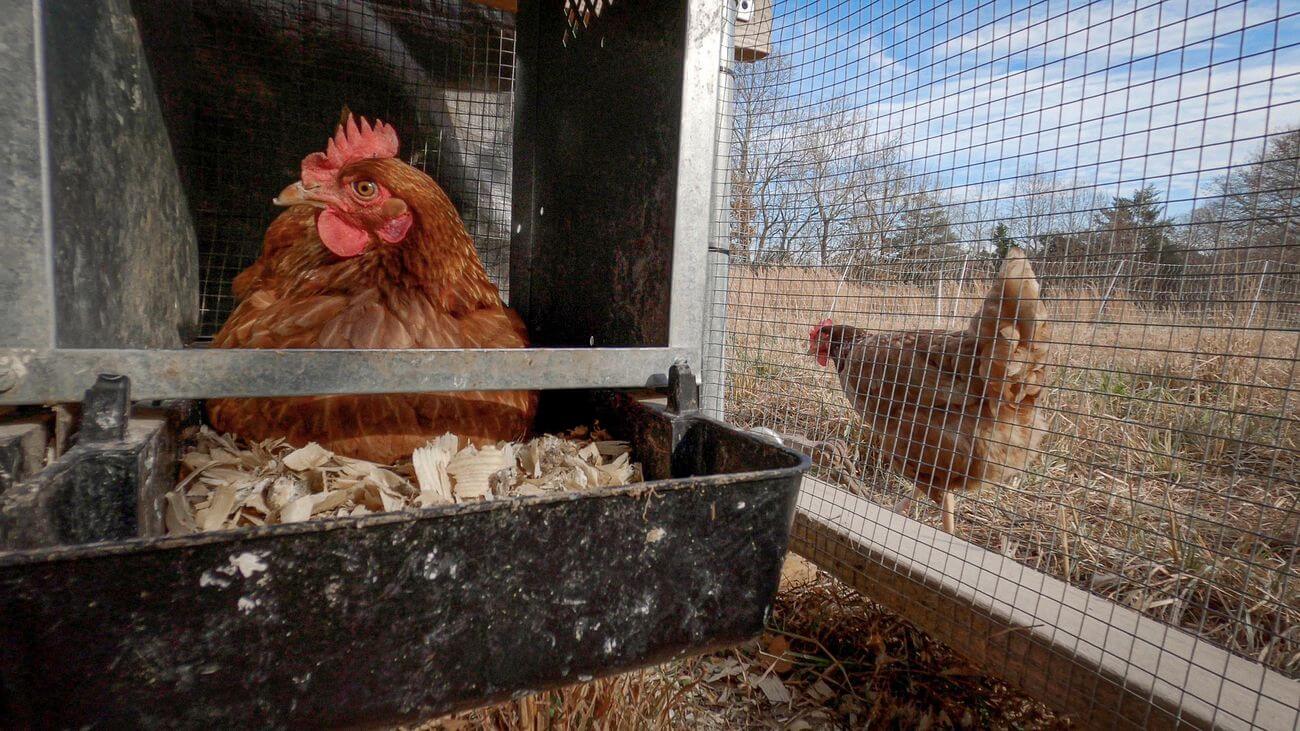Poultry pests and predators depending on your poultry system can result in the loss of birds or produce. Wild animals, rats and birds of prey can wreak havoc on your poultry farm, if you do not have appropriate measures in place.
Using appropriate protective measures in your poultry farm can go along way to securing your flock. In addition to storing poultry feed securely, using folding unit for extensive poultry farming and having cats on your farm can minimise predation and pests.
Poultry pests and predators
Big predators
In our case, we are wary of at least two predators. That is, monkeys and hawks. Birds of prey are a big threat especially when we let small chicks outdoors. The presence of birds of prey around your farm stresses your chicken, and could result in the loss of young chicks via predation.
Moreover, depending on where you live, you should also be wary of other poultry predators such hawks, coyotes, wild dogs, foxes, possums, wild cats and skunk.
Rats and other pests
Poultry feeds tend to attract rats to a coop or wherever they are stored. Obviously since they are made from dry grains, a favourite for rats, it is only natural to expect rats in your coop.
We store egg shells along with poultry feed for drying and later crushing and mixing with poultry feeds. However, we have noted to our dismay that rats do feed on egg shells. Having any materials that pests can feed on around your farm will definitely attract them.
That we do some backyard farming and have some cover plants such as pumpkins and sweet potatoes does not help our case.
How to protect your flock from poultry pests and predators
Use folding unit poultry system
Extensive poultry systems, especially free range and semi intensive are particularly prone to predators. Moreover, it would be super expensive to fence up huge pastures when using such systems with a large flock.
However, folding unit poultry system can provide safety to your flock while also allowing them to venture outside. A folding unit not only protects your flock but also your eggs.

In our case, we are yet to have any actual threat from them monkeys. So far, our chicken, and even the eggs that they lay outside have been safe.
However, we are not waiting for predation to happen in order for us to take the safety of our chicken seriously. For instance, we only let our chicken out if we are around to observe them.
Get a cat or a litter of them
Having a cat or two in your farm can go along way to keeping rats and other similar pests at bay.
Whenever we have a cat on our farm, we do not worry about having rats and other similar pests. In our case, the cat resides outside the house and can roam freely around the homestead.

As a predator, the cat leaves markers of its presence around the farm, wherever it roams. This in itself scares off any potential rats. Furthermore, a cat will catch any rats around your farm, and help you keep your compound pest free.
Store poultry feed securely to keep poultry pests and predators away
If you can, store your poultry feed in a bin that cannot be accessed by rats. Doing so reduces the pleasant smell that tends to attract rats to your storage or coop.
Additionally, this prevents you from losing feed to pests such as rats. Moreover, storing your feed in secure containers can also prevent your poultry feed from being infected with rat-borne diseases. Although such diseases may not be common, it is always better to be safe than sorry.
For your information, chicken do feed on rats, if they can catch them. The risk of disease or feed contamination from rats may be minimal. However, you do not want your coop to become a rat house.
Access to dirt bathing
Deep litter poultry system and extensive systems are effective in controlling small pests such as poultry mites and fleas. This is because they enable your chicken engage in dirt bathing. Additionally, aviary poultry system can also be considered as being equally effective.

Dirt bathing is a means by which poultry keep clean and also protect themselves from such small pests. Therefore, if you can, do provide your flock access to dirt bathing. This will help your chicken stay health and fight off potential mite or flea infestation.
Also see our article on why backyard poultry farming may be the next best thing to do.

